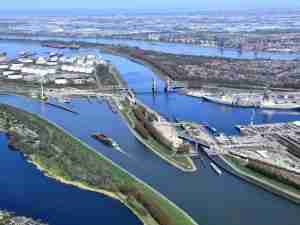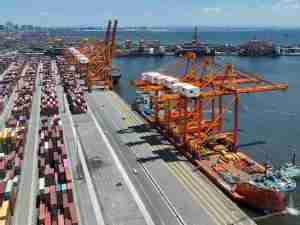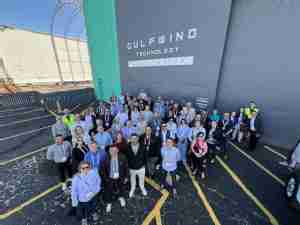The world's No. 5 coal exporter expects to double coal output by 2019, and coal players complain that the lack of access to cheap infrastructure is cutting exporter profits and raising prices at a time when Asian demand is rising.
"We'll complete the first phase in the second half of the coming year, more towards the end," Javier Mendez, vice president of Puerto Brisa, said late Thursday.
The port -- located in Guajira state along the Caribbean sea -- began leveling works in July and has just contracted a company to begin port building, Mendez told reporters at a coal infrastructure conference in the town of Paipa.
The harbor with water depth of 66 feet will be able to handle ships of up to 180,000 dead weight tons, and in its first phase, it can have two ships docked at a time, he said.
The Andean nation has seen a boom in energy and mining investment since former President Alvaro Uribe took power in 2002 and pushed pro-investment polices and a U.S.-backed security crackdown on Marxist guerrillas.
Colombia's coal production is dominated by big thermal producers with their own port and rail facilities such as Glencore, Drummond and Cerrejon, a joint venture owned by BHP Billiton , Anglo American and Xstrata .
Small producers -- mainly inland metallurgical coal players -- say they struggle with high costs of transporting their material and getting port access for export.
This month, Colombia formally approved a 30-year concession for a 32-million-tonnes-a-year coal port with majority shares owned by Glencore's Prodeco unit.
President Juan Manuel Santos' government -- which has vowed continuity with Uribe's pro-business policies and took power on Aug. 7 -- recently said it would allocate additional spending in the 2011 budget of more than $1 billion on infrastructure, agriculture, mining, technology and housing.
Mendez said Puerto Brisa -- which is privately funded -- will have an initial 4,000 tonnes-an-hour capacity loader and will probably move 6.5 million tonnes of bulk coal in its first year. It expects to later handle container traffic.
Mendez did not give a figure on how much the project would cost nor details on the next phases of the project. (Reuters)









